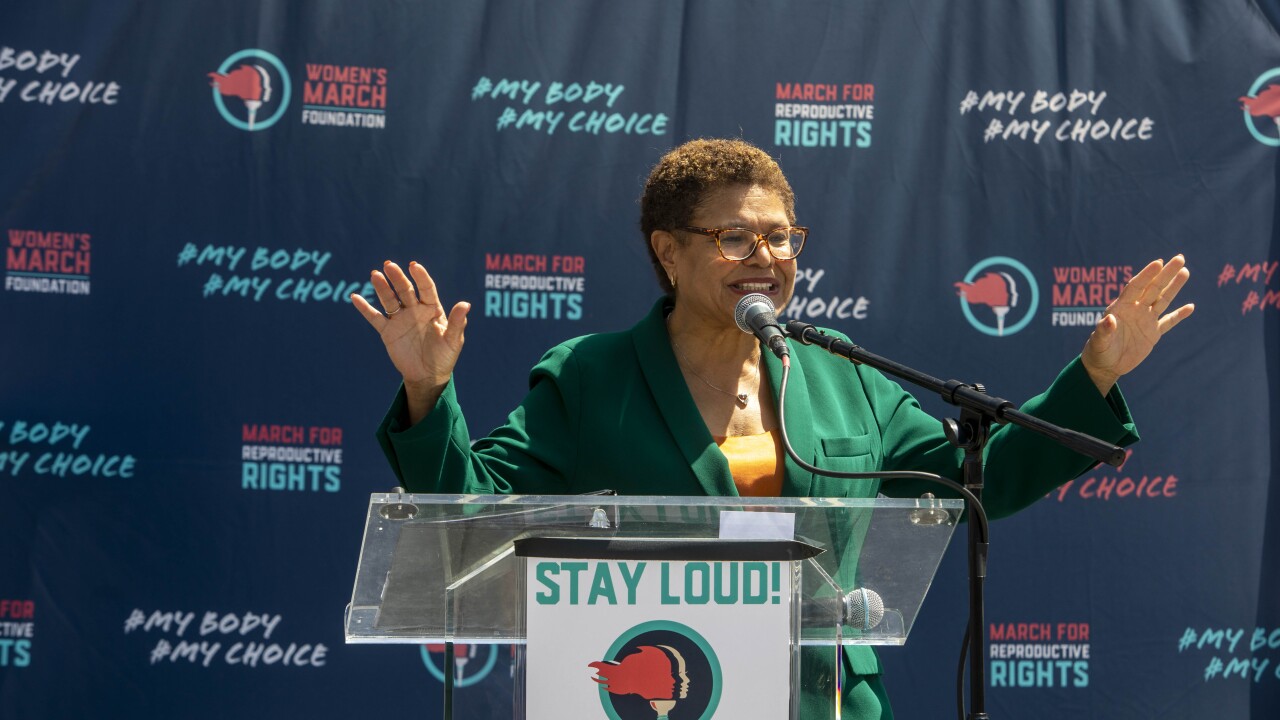
WASHINGTON – The Municipal Securities Rulemaking Board's net assets in fiscal 2016, similar to those for the previous year, are still close to triple where they were in 2010, even after a $5.5 million rebate the self-regulator gave dealers this past year.
The MSRB's $69.3 million in net assets in its fiscal year 2016, which ran from Oct. 1, 2015 through Sept. 30, 2016, was slightly below the $69.5 million it had in its fiscal year 2015, according to MSRB financial documents. The $200,190 decrease in 2016 is the first the MSRB has experienced since 2010, when its net assets dropped $451,000 and the board ended with $26 million in net assets.
The figures are from MSRB financial statements for fiscal years 2012 through 2016. The 2016 data was in an annual report the self-regulator released on its work during the fiscal year.
MSRB executive director Lynnette Kelly said in a letter included in the report that the MSRB aims to keep a financial reserve target that is approximately 12 months of operating expenses plus three-times annual capital needs. The self-regulator determined in July 2016 that its reserves had risen above the targeted levels and decided to issue a $5.5 million rebate to dealers who were assessed underwriting, transaction, or technology fees during the year.
"As we head into 2017, you have my commitment that we will continue the strict financial oversight that enables the MSRB to protect the $3.8 trillion municipal market while striving to allocate the associated costs as fairly and equitably as possible," Kelly wrote.
Leslie Norwood, managing director, associate general counsel and co-head of munis for the Securities Industry and Financial Markets Association, said that as regulatory and other costs of doing business increase for dealers, the fees "serve as a tax on the efficiency of business and a challenge for broker dealers."
She reiterated a past SIFMA request that the MSRB undertake a comprehensive review of its fee structure and budgeting process.
"Among other things, we feel concerned about the amount of financial reserves the MSRB has charged the industry to fund," Norwood said.
The review should focus on allocating costs among all segments of regulated entities, long-term budgeting to let dealers better plan for costs, and attention to the need for fee rebates, according to Norwood.
"While we acknowledge and appreciate the MSRB fee rebates, it would be rational for the MSRB to set fees at a level that does not result in excessive surpluses, necessitating the need for rebates," she said. "Rebates can be problematic for the industry, and instead we strongly prefer the MSRB reduce fees up front, and raise fees if necessary."
The MSRB drew in about $35.4 million in revenue in 2016. That number does not include the $5.5 million rebate. The majority of the self-regulator's revenue in 2016 came from underwriting assessment fees and transaction fees, which brought in $10.3 million and $11.6 million respectively. Those numbers do not include $4 million of the rebate.
All of the fee revenues fell from their 2015 levels except for those encompassing annual and initial fees as well as data and subscriber fees and other revenue. Annual and initial fees nearly doubled to $2.1 million in fiscal 2016 from $1.1 million the year before. Data subscriber fees and other revenue rose to $3.2 million, a 23% increase from the $2.6 million the year before.
The increases are likely from changes the MSRB decided on in 2015 to better distribute costs among regulated entities based on their level of involvement in market activities. The self-regulator raised its initial fee to $1,000 from $100 and its annual fee to $1,000 from $500. It also dropped its underwriting fee to $0.0275 per $1,000 of par value of primary offerings from $0.03 per $1,000.
MSRB expenses rose to $35.6 million in 2016 from $32.2 million in 2015 as spending in four of its five key operational areas increased.
In addition to its annual report, the MSRB has also announced it will add a new issue calendar to its EMMA website. The calendar will list munis scheduled for sale to investors as well as pricing of recently sold issues, the MSRB said. Kelly said that investors will be able to use the calendar to research upcoming offerings and that state and local governments can use it for information about timing on new bonds. Users will be able to filter upcoming bond issues by state, tax status, and whether the offering is bank qualified.
The MSRB is also seeking applicants to fill five positions on its board starting on Oct. 1. The board has 11 public and 10 regulated members. Three of the five positions to be filled are public and two are regulated. One of the regulated seats is for a non-dealer municipal advisor.
The MSRB said in its call for applicants that it is particularly interested in individuals with strong knowledge of muni sales and trading desk operations as well as those with experience in underwriting or syndicate practices. It is also interested in retail and institutional investor applicants.
Three current board members -- one public and two regulated -- will receive a one-year extension for the MSRB's fiscal year 2018 as part of the self-regulator's transition to four year board terms by 2020.





